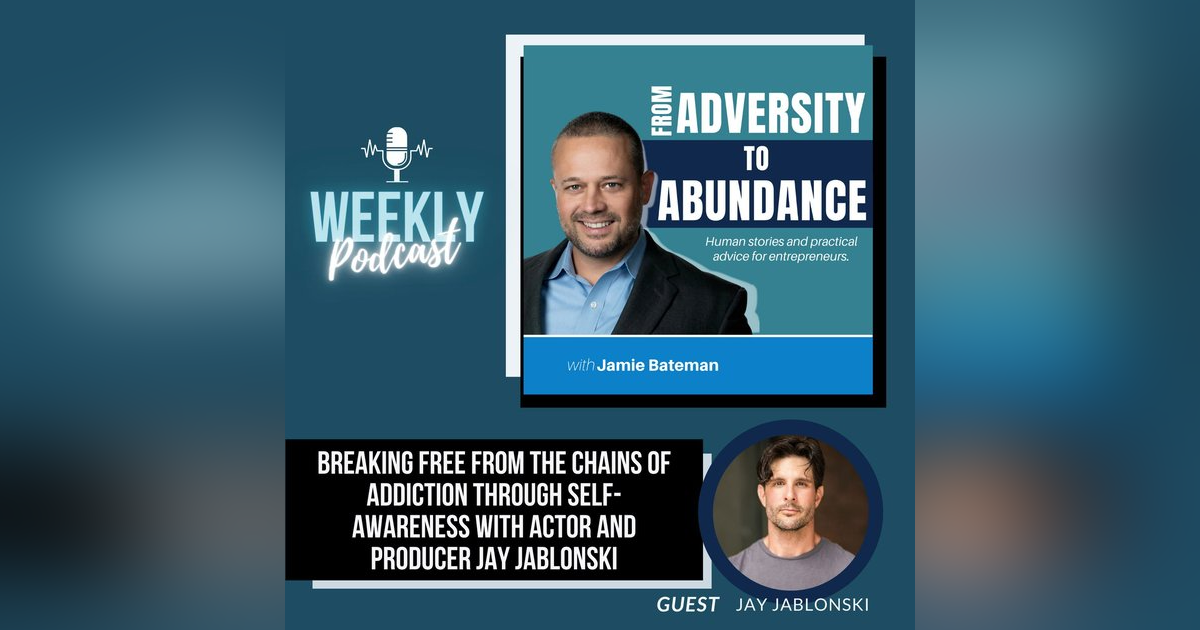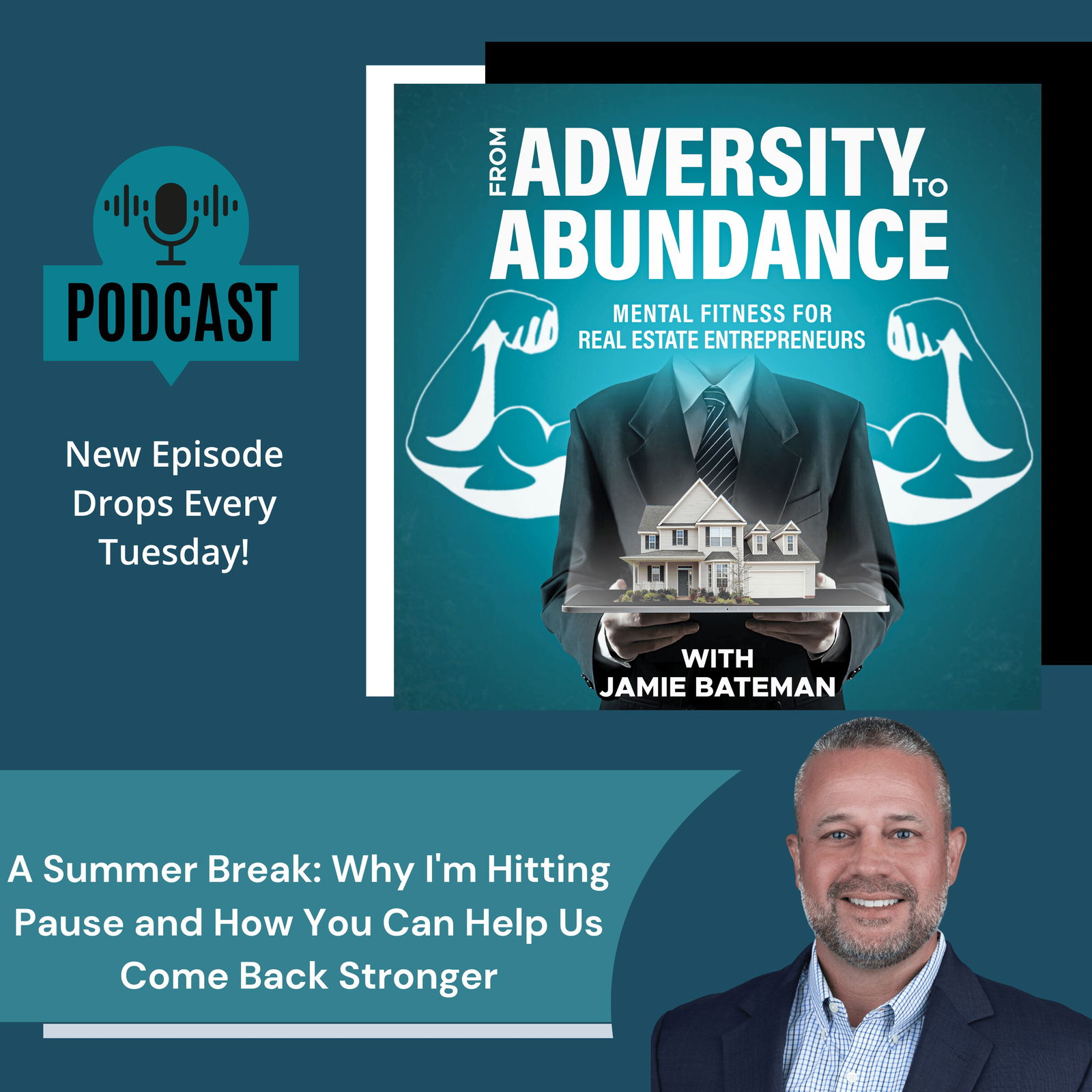Breaking Free from the Chains of Addiction through Self-Awareness with Actor and Producer Jay Jablonski


Are you ready to challenge some common myths about personal growth and recovery? Let's start by debunking three popular misconceptions: 1) Self-awareness is only for introspective people, 2) Intentional living is a luxury that can wait until later, and 3) Recovery means simply abstaining from addictive substances. Stay tuned as our guest, Jay Jablonski, reveals the truth behind these myths and shares how self-awareness and intentional living can truly transform your life.
In today's podcast, we introduce the dynamic Jay Jablonski. Jay is an award-winning producer. His life has been a tapestry woven from threads of challenging adversities, chronicled by episodes of physical injuries and addiction. Yet, Jay emerged victorious by honing his acting skills and by embarking upon a journey fraught with self-discovery. His experiences have forged him into an ambassador of personal growth and recovery, making him a valuable guest on our show for those seeking inspiration in their respective paths.
“I had a lot of energy...that could be a beautiful thing if harnessed correctly and allocated to a good source, or it could be a real negative thing, especially if I didn't get it out.”
Gain insights into battling addiction
Jay Jablonski's first-hand experience with alcohol and Vicodin addiction offers invaluable insights into the complex nature of addiction. His humble recognition of the problem and the subsequent brave decision to seek help through AA and hiring a life coach exemplifies the difficult path to recovery. Jay's story emphasizes the crucial role of support systems, the power of community, and the essence of admitting the need for help in overcoming addiction.
Books and Resources
The Alchemist: A Graphic Novel (an illustrated interpretation of The Alchemist)
Connect with Jay Jablonski:
LINKEDIN: https://www.linkedin.com/in/jay-jablonski-7b4703119/
INSTAGRAM: https://www.instagram.com/jayjablonski1/
FILM: https://www.blackwhiteandthegreys.com/
FILM INSTAGRAM: https://www.instagram.com/blackwhiteandthegreys/
FILM LINKTREE: https://linktr.ee/BlackWhiteandtheGreys
CHARITY ORG: https://dawsonspeak.org/
ORG INSTAGRAM: https://www.instagram.com/dawsonspeak/
ORG FACEBOOK: https://www.facebook.com/dawsonspeakcharity
Haven Financial:
https://www.myfinancialhaven.com/jamiebateman/
ATTENTION:
Unlock the secrets to a transformative life with “From Adversity to Abundance: Inspiring stories of Mental, Physical and Financial Transformation”. Buy your copy now and embark on a journey from challenges to triumphs!
AMAZON: https://www.amazon.com/dp/B0CGTWJY1D?ref_=pe_3052080_397514860
Connect with us
WEBSITE: https://www.adversity2abundance.com
Leave us a rating or review: https://www.adversity2abundance.com/reviews/new/ or here
Got comments, feedback or suggestions? We’d love to hear it! https://www.adversity2abundance.com/contact/
Follow From Adversity to Abundance Podcast
FACEBOOK: https://www.facebook.com/profile.php?id=100089126144055
INSTAGRAM: https://www.instagram.com/adversitytoabundancepodcast/
LINKEDIN: https://www.linkedin.com/company/89949391/admin/feed/posts/
YOUTUBE: https://www.youtube.com/@FromAdversity2AbundancePodcast
Connect with Jamie
BOOK: From Adversity to Abundance: Inspiring Stories of Mental, Physical, and Financial Transformation
LINKEDIN: https://www.linkedin.com/in/jamie-bateman-5359a811/
TWITTER: https://twitter.com/batemanjames





